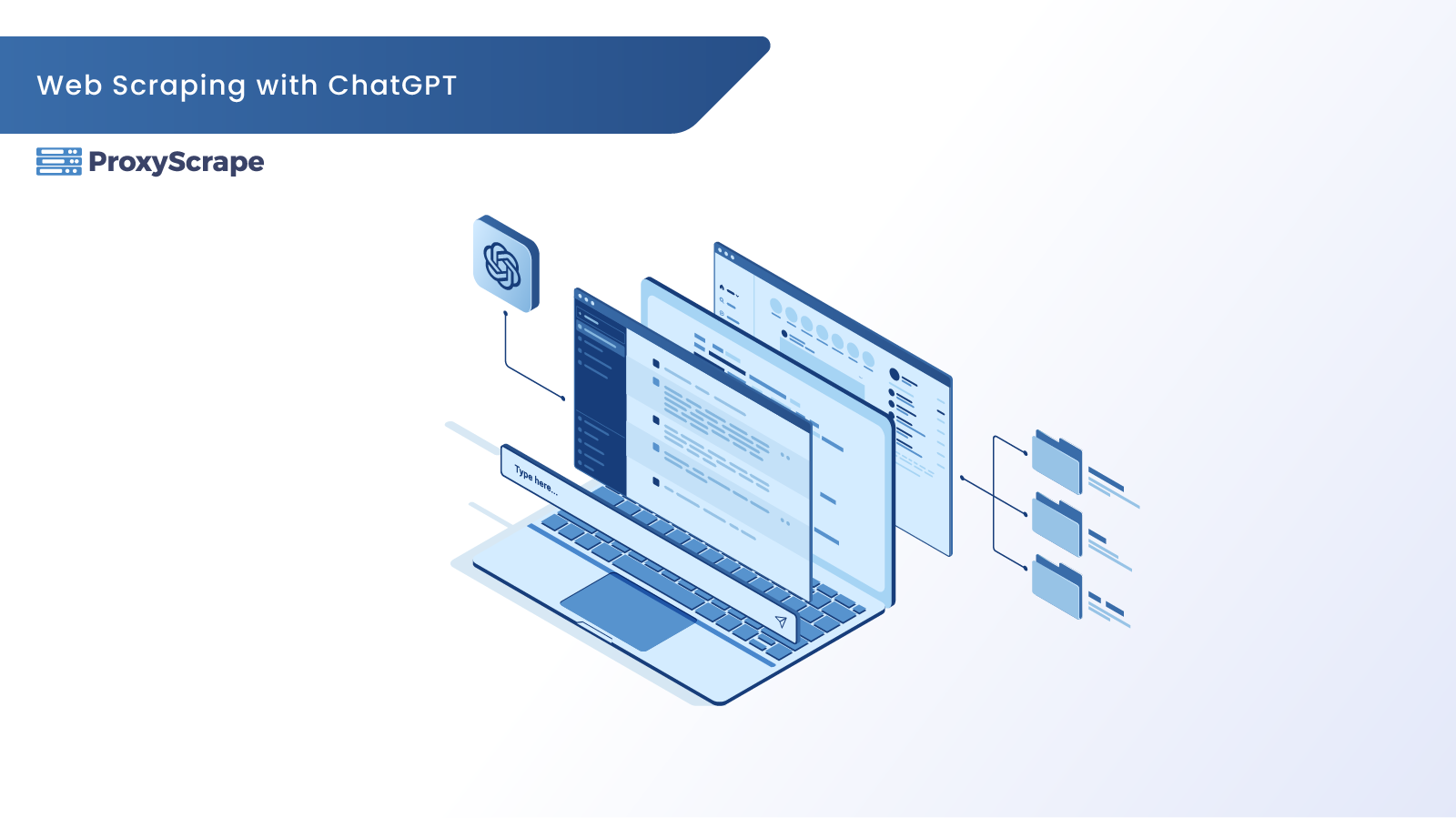Web scraping is a powerful tool for developers, data scientists, digital marketers and many other people who wish to extract valuable data from websites. If you're looking to elevate your web scraping journey, harnessing the capabilities of ChatGPT can help you a lot. This blog will guide you through using ChatGPT to create robust, efficient, and reliable web scraping scripts.
Category: Guides
Cleaning and Preprocessing Scraped Data
By: ProxyScrapeAug-09-2024
In this blog post, we’ll explore the various challenges you might face with scraped data and offer a detailed guide on how to clean and preprocess it for optimal results. Whether you're a seasoned data analyst or a budding web scraper using Python, this guide aims to arm you with practical tips and techniques to efficiently tidy up your datasets.
Web Scraping with R Programming Language
By: ProxyScrapeJul-26-2024
In today's data-driven world, the ability to gather vast amounts of information from the web has become a crucial skill. Whether you're a data scientist, programmer, analyst, or just a web scraping enthusiast, understanding how to efficiently extract data can open up a world of opportunities. One of the most powerful tools in your arsenal for this task is the R programming language. In this blog post, we'll take you through the essentials of web scraping with R, from setting up your environment to implementing advanced techniques, ensuring you're well-equipped to tackle any data extraction challenge.
Top JavaScript Libraries for Web Scraping
By: ProxyScrapeJul-20-2024
Whether you're a digital marketer gathering competitor data, a data engineer mining vast amounts of information, or a developer automating tedious tasks, web scraping can revolutionize your workflow. But which tools should you use to get the job done efficiently? This comprehensive guide will introduce you to the top Javascript libraries for web scraping, providing the insights needed to choose the right one for your projects.
Scrape Emails from Websites using Python
By: ProxyScrapeJul-15-2024
In an age where data is king, the ability to scrape information from websites can give you a significant edge. Whether you're a Python developer, a web scraping enthusiast, or a digital marketer, learning to extract emails using Python can be very useful in your web scraping journey. This guide will walk you through everything you need to know, from the basics to advanced techniques.
How to use Proxyscrape Proxies with Docker
By: ProxyScrapeJul-08-2024
Certain use cases require you to proxy traffic in programs that do not natively support proxies. The previous blog discussed how this is possible on Windows, but there are also plenty of use cases for proxies on Linux or even Docker containers for added flexibility.
Transform Mobile Testing with Playwright and Mobile Proxies
By: ProxyScrapeJul-05-2024
Welcome, developers, web testers, QA engineers, and Python enthusiasts! If you're looking to elevate your mobile testing game, you've come to the right place. This blog post is your comprehensive guide to using mobile proxies with Playwright for mobile testing. We'll explore the basics, explain why mobile proxies are essential, and walk you through setting up and using them with Playwright. By the end, you'll be equipped with practical tips, and insights into future developments.
Scrapoxy: The Ultimate Tool for Unrestricted Web Scraping
By: ProxyScrapeJun-15-2024
Web scraping has become an essential tool for developers, data scientists, and IT professionals looking to extract valuable data from websites. However, the challenge of avoiding bans, managing request rates, and maintaining anonymity can be daunting. Enter ProxyScrape and Scrapoxy—two powerful tools that, when integrated, make web scraping more efficient and effective.
A Guide to Simplifying Web Scraping in Python with AutoScraper
By: ProxyScrapeMay-24-2024
AutoScraper is a powerful, open-source web scraping library for Python that simplifies the process of extracting data from websites. Unlike traditional web scraping frameworks that require extensive coding to parse HTML content, AutoScraper can automatically generate rules to extract the desired information based on examples you provide. AutoScraper is particularly well-suited for beginners in the web scraping world. Its user-friendly interface and automatic rule generation make it accessible for those who may not have extensive coding experience.
Fast Web Scraping: Async, Threads, and Processes in Python
By: ProxyScrapeApr-19-2024
Web scraping is an invaluable technique for developers, enabling the extraction of data from websites in an automated manner. However, it comes with its own set of challenges, including managing I/O operations effectively, handling rate limits, and bypassing anti-scraping measures. In this blog, we'll explore three powerful methods to enhance your web scraping efficiency: async (asynchronous programming), multithreading, and multiprocessing, and how leveraging these approaches can significantly speed up your data extraction tasks.
